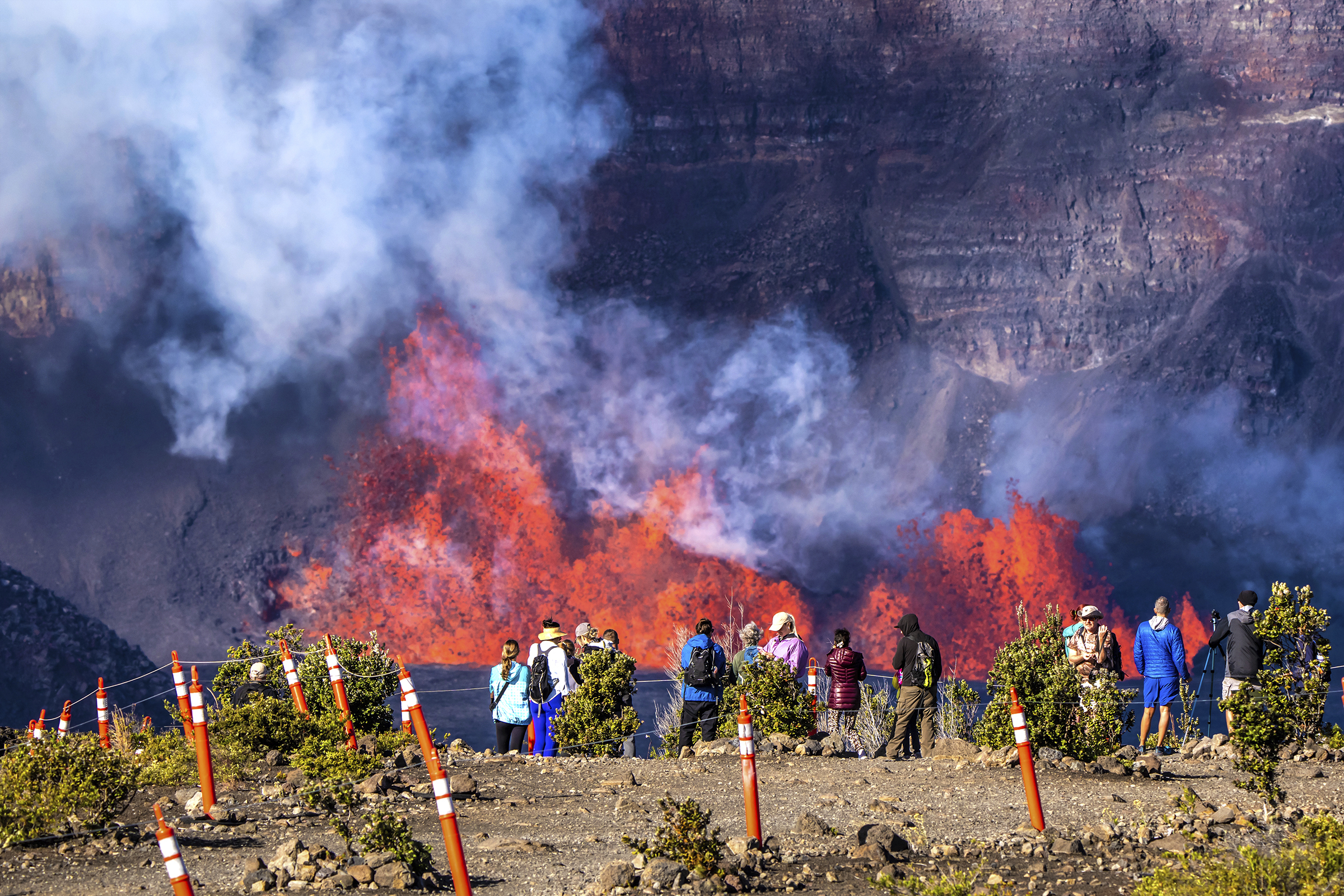
TikTok's future remains uncertain in the U.S., but could the popular social media platform be banned entirely?
The answer depends on quite a few things.
Here's a breakdown of what we know so far:
Why could TikTok be banned?
A federal appeals court panel on Friday unanimously upheld a law that could lead to a ban on TikTok as soon as next month, handing a resounding defeat to the popular social media platform as it fights for its survival in the U.S.
The U.S. Court of Appeals for the District of Columbia Circuit denied TikTok's petition to overturn the law — which requires TikTok to break ties with its China-based parent company ByteDance or be banned by mid-January — and rebuffed the company's challenge of the statute, which it argued had ran afoul of the First Amendment.
“The First Amendment exists to protect free speech in the United States,” said the court's opinion, which was written by Judge Douglas Ginsburg. “Here the Government acted solely to protect that freedom from a foreign adversary nation and to limit that adversary’s ability to gather data on people in the United States.”
U.S. & World
The U.S. has said it’s concerned about TikTok collecting vast swaths of user data, including sensitive information on viewing habits, that could fall into the hands of the Chinese government through coercion. Officials have also warned the proprietary algorithm that fuels what users see on the app is vulnerable to manipulation by Chinese authorities, who can use it to shape content on the platform in a way that’s difficult to detect. The European Union on Friday expressed similar concerns as it investigates intelligence that suggests Russia possibly abused the platform to influence the elections in Romania.
“Today’s decision is an important step in blocking the Chinese government from weaponizing TikTok,” Attorney General Merrick Garland said in a statement Friday.
Feeling out of the loop? We'll catch you up on the Chicago news you need to know. Sign up for the weekly> Chicago Catch-Up newsletter.
What does TikTok say about it?
TikTok asked a federal appeals court on Monday to bar the Biden administration from enforcing the law until the Supreme Court reviews its challenge to the statute.
“The Supreme Court has an established historical record of protecting Americans' right to free speech, and we expect they will do just that on this important constitutional issue," TikTok spokesperson Michael Hughes said in a statement.
“Unfortunately, the TikTok ban was conceived and pushed through based upon inaccurate, flawed and hypothetical information, resulting in outright censorship of the American people,” Hughes said. Unless stopped, he argued the statute “will silence the voices of over 170 million Americans here in the US and around the world on January 19th, 2025.”
If the law is not overturned, both TikTok and its parent ByteDance, which is also a plaintiff in the case, have claimed that the popular app will shut down by Jan. 19, 2025. TikTok has more than 170 million American users who would be affected, the companies have said.
In their legal filing on Monday, attorneys for the two companies wrote that even if a shutdown lasted one month, it would cause TikTok to lose about a third of its daily users in the U.S.
The company would also lose 29% of its total “targeted global” advertising revenue for next year as well as talent since current and prospective employees would look elsewhere for jobs, they wrote.
“Before that happens, the Supreme Court should have an opportunity, as the only court with appellate jurisdiction over this action, to decide whether to review this exceptionally important case,” the filing said.
TikTok, which sued the government over the law in May, has long denied it could be used by Beijing to spy on or manipulate Americans. Its attorneys have accurately pointed out that the U.S. hasn’t provided evidence to show that the company handed over user data to the Chinese government, or manipulated content for Beijing’s benefit in the U.S. They have also argued the law is predicated on future risks, which the Department of Justice has emphasized pointing in part to unspecified action it claims the two companies have taken in the past due to demands from the Chinese government.
Attorneys for the two companies are asking the appeals court to decide on the request for an enforcement pause by Dec. 16. The Department of Justice said in a court filing on Monday that it will oppose the request. Justice officials also suggested that an expedited decision denying TikTok's request would give the Supreme Court more time to consider the case.
Will the Supreme Court hear the case?
It's not clear if the Supreme Court will take up the case. But some legal experts have said the justices are likely to weigh in on the case since it raises novel issues about social media platforms and how far the government could go in its stated aims of protecting national security.
President-elect Donald Trump, who tried to ban TikTok the last time he was in the White House, has said he is now against such action.
In their legal filing, the two companies pointed to the political realities, saying that an injunction would provide a “modest delay” that would give “the incoming Administration time to determine its position — which could moot both the impending harms and the need for Supreme Court review.”



